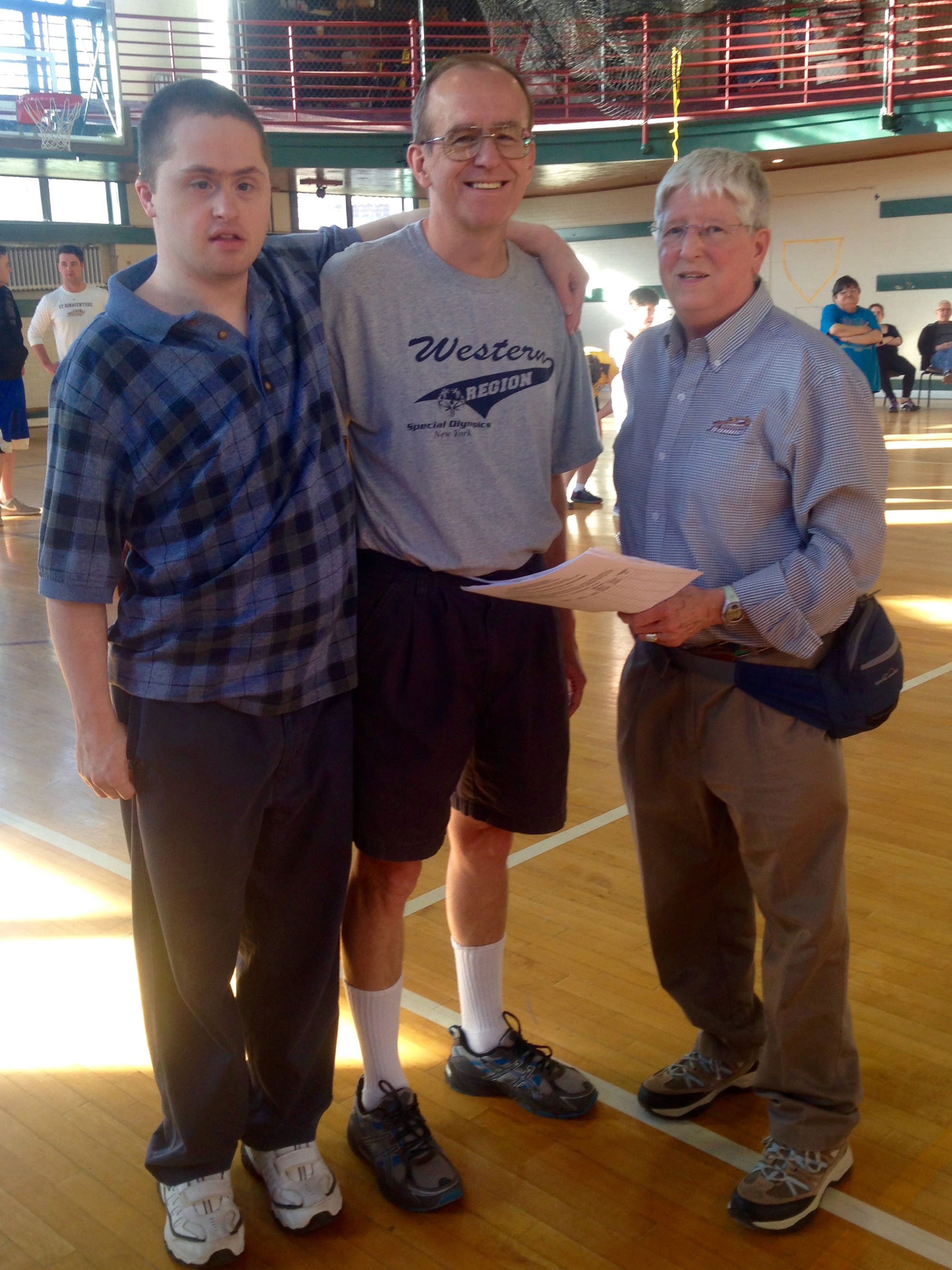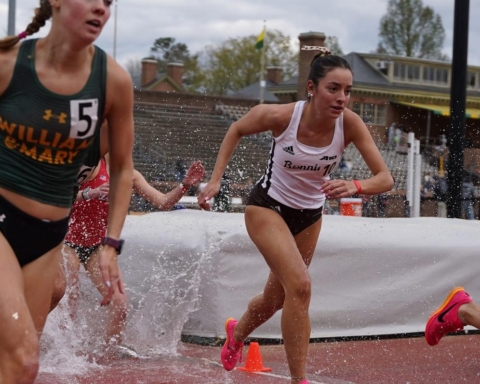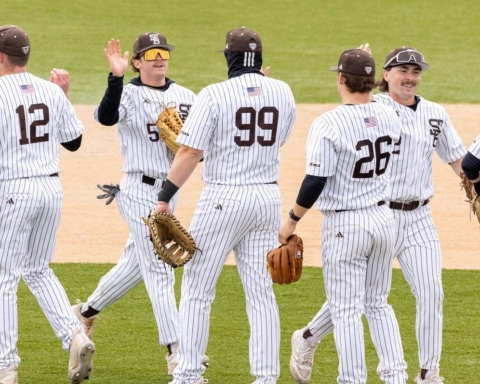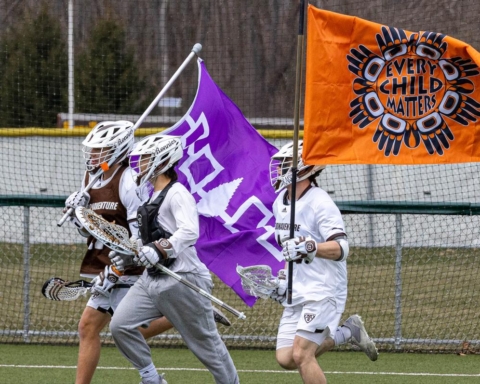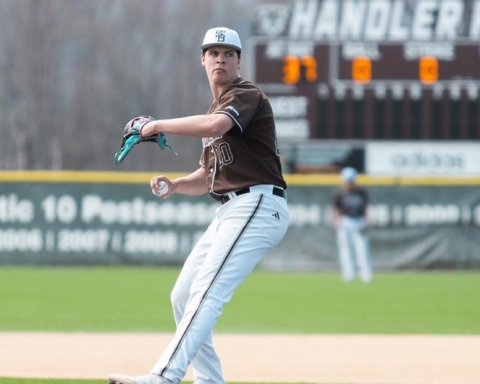By Amelia Kibbe
Advisory Editor
Tuesdays are busy for Dr. Carl Case. The days consist of a mix of classes, meetings with clubs he advises and updates on summer study programs he organizes.
But by a little before 6 p.m., he’s changed out of his work clothes and has begun warmups with his Special Olympics volleyball team in Butler Gym.
He spends the next hour with both the adult athletes and St. Bonaventure University students, who assist in coaching, practicing skills and scrimmaging. Over the years—he coached more than 20—he’s gotten to know some of the athletes really well, especially since one of them is his son, Chris.
“He’s a very gifted athlete,” Case said. “When my son was born, some people felt sorry for us, saying [his disability] was a terrible thing. In reality it wasn’t at all. He brought parts to my life that I would have never had. He made my life so much better.”
Family is how Case got his start in the program. After his son had gone through school Special Olympics programs, Case, a 20-year management professor, began coaching. Now certified in bowling, basketball, track and field and bocce, Case has attended Special Olympics games of all levels, along with his wife, Marsha, also a coach.
“Coaching is just like any other sport someone would coach for,” he said. “It’s just that the expectations of someone with developmental disabilities are different.”
Special Olympics, founded in 1968, serves as the world’s largest organization for both adults and children with intellectual disabilities. Competition and training programs are broken down into international, national, state and regional levels, Case said.
“From my perspective, it’s really rewarding—I enjoy getting to see the athletes grow, just like I get to see my students grow in class,” said Case, a 1980 and 1982 St. Bonaventure graduate.
Case, a native of nearby Bolivar, previously served as the Special Olympics coordinator for Allegany and Cattaraugus counties.
Several years ago, he began working with Dr. Paula Scraba, who also had an extensive background in Special Olympics, to begin training university students to work with the athletes.
“We are dependent upon each other,” Scraba said. “I need his athletes for our students and he needs our students for his athletes. It’s a really nice atmosphere.”
For Case, a certified clinician for New York State, working with the students means he can teach the next generation of coaches.
“It’s the highlight of [the athletes’] week—to see the Bonaventure students,” Case said, explaining the students in one of Scraba’s senior forum classes do most of the teaching during the spring. “It’s a win-win for everybody.”
Each year, the Cases host an awards dinner, honoring athletes’ achievements, at the Clubhouse Restaurant near the university. According to Scraba, the dinner is just another example of the dedication Case has for the athletes.
“He’s a remarkable person,” she said. “I just take my hat off what he’s done so far—there’s so much—and what he’s doing.”
But for Case, it’s about spreading a very important message.
“We are trying to break down the barriers that individuals with disabilities are different,” Case said. “They are not. They’re just like everyone else. Everyone has challenges.”
kibbeaa13@bonaventure.edu

